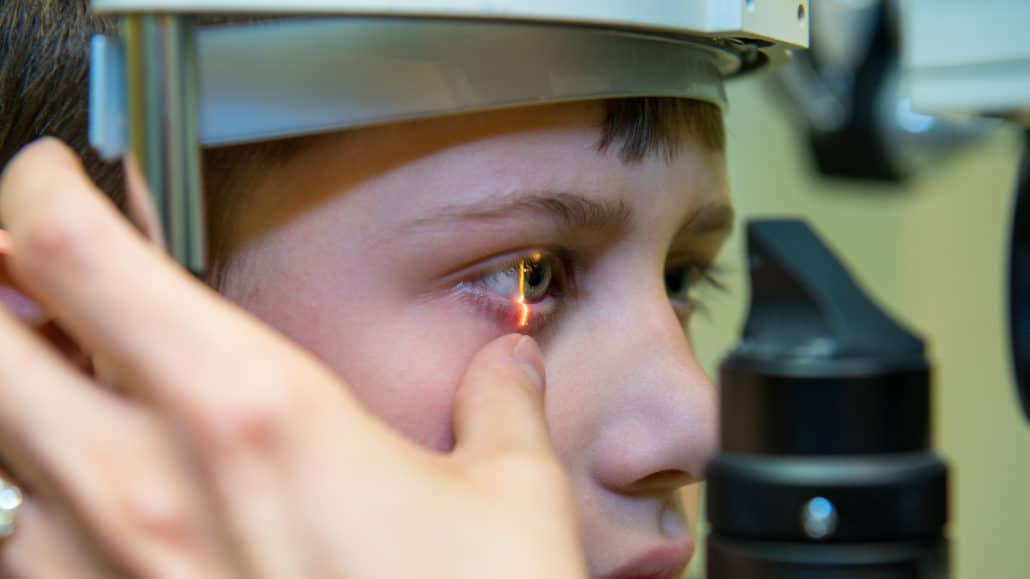
But don’t count on these screenings to give you the complete picture about your child’s vision health. Screenings are just that: a basic check for problems that affect your child’s ability to function at school. School vision screenings mainly focus on a student’s ability to see at a distance, such as presentations on blackboards or monitors.
Such a screening can miss crucial disease or functional problems with eyesight. For example, a child who is far-sighted might have no trouble with a test for distance vision. But because they have blurred near vision, they could still struggle with reading or other up-close school work.
Screenings do help–but to get the best evaluation of your child’s vision, they should undergo a comprehensive examination by a qualified eye care provider. A vision exam evaluates their eye health and uncovers signs and symptoms of disease. And the doctor conducting the exam will check for functional deficiencies like near- or far-sightedness, crossed eyes or lazy eye, or astigmatism (an abnormally-shaped cornea).
A complete eye exam will also include your child’s entire ocular system to see that it’s developing and functioning normally. The doctor will check for eye teaming (the ability of the eyes to coordinate with each other for binocular vision), eye tracking and focus, and hand-eye coordination. These tests may reveal functional issues that could easily be missed by a basic screening.
If necessary, an eye doctor can recommend and provide corrections to vision (like glasses or contacts) that will help your child see better. This could prove beneficial to their overall school performance, and it might also help with their vision development over the next few years.
Besides an initial eye exam at 6 to 12 months of age and another at around age 3, the Hattiesburg Eye Clinic also recommends a comprehensive exam around the time a child enters first grade. They should then have an exam every two years unless vision problems or other health issues require more frequent visits.
While vision screenings are helpful, they can’t do what a full eye exam can do for your child. Getting this kind of an evaluation could uncover problems you didn’t know were problems.
For more information about children’s vision care, visit our webpage on Pediatric Services. To learn more about how Hattiesburg Eye Clinic can improve your vision health, call 601-268-5910 (or toll-free 800-624-8254) or schedule a consultation with us. Follow us on Facebook here.


